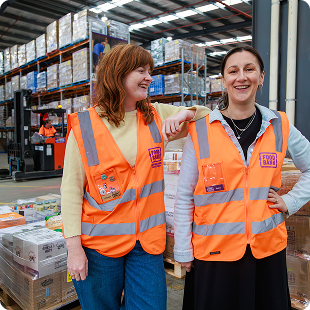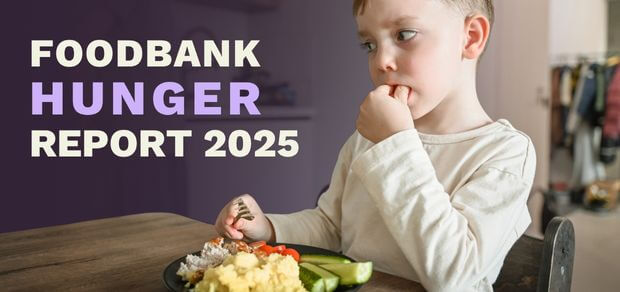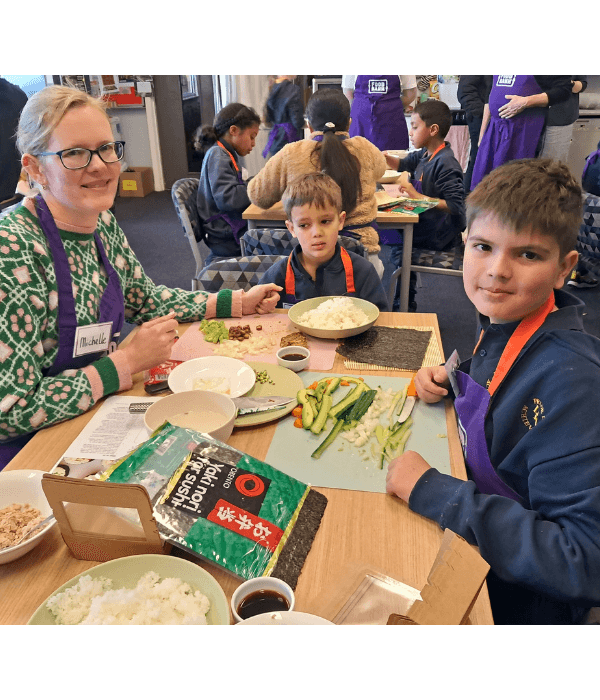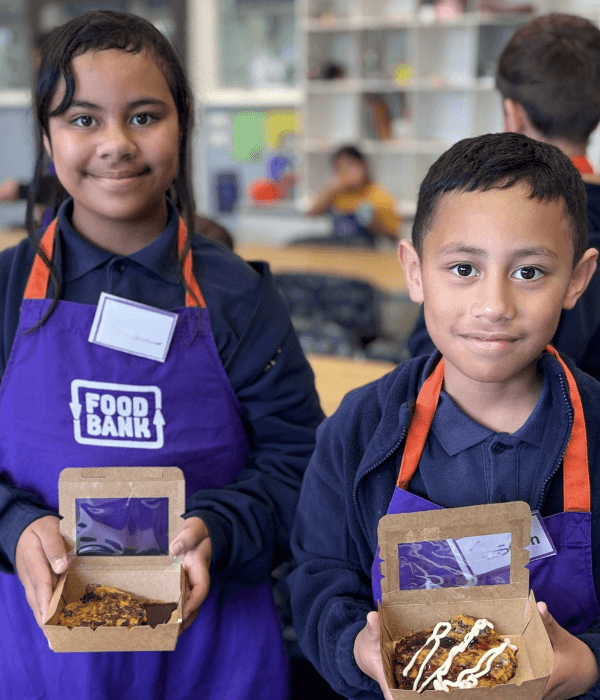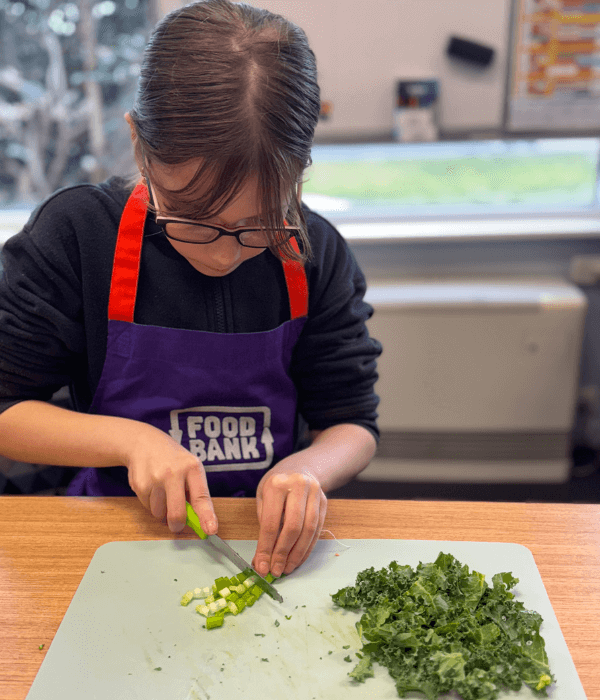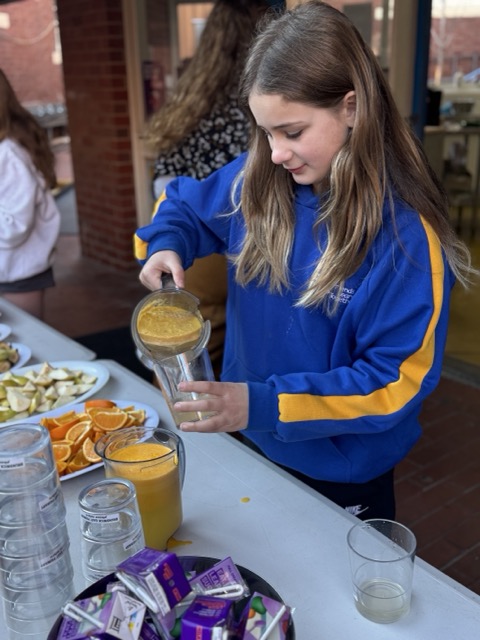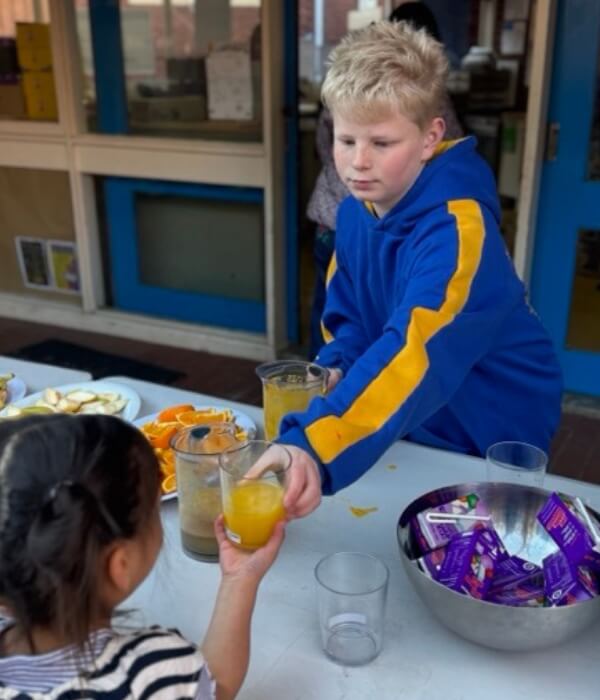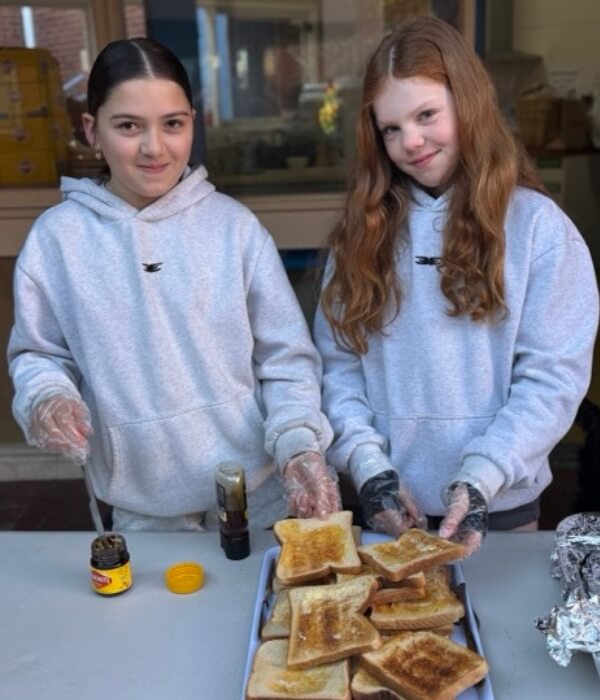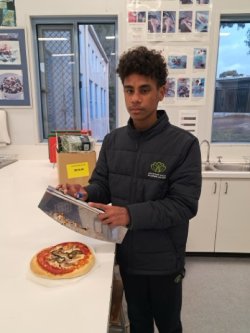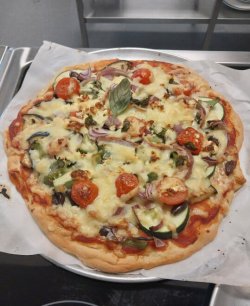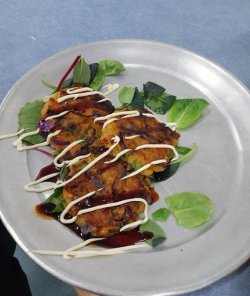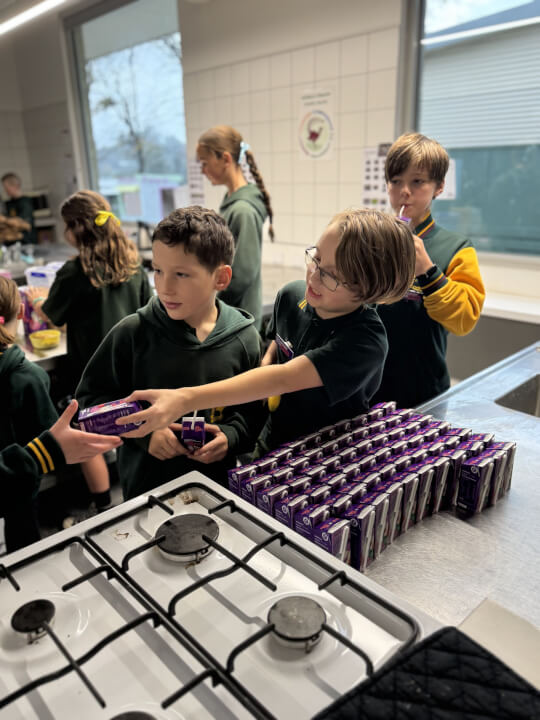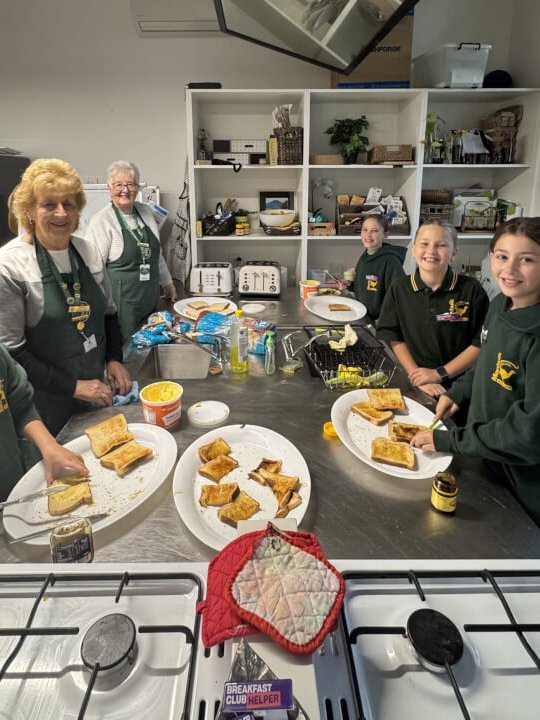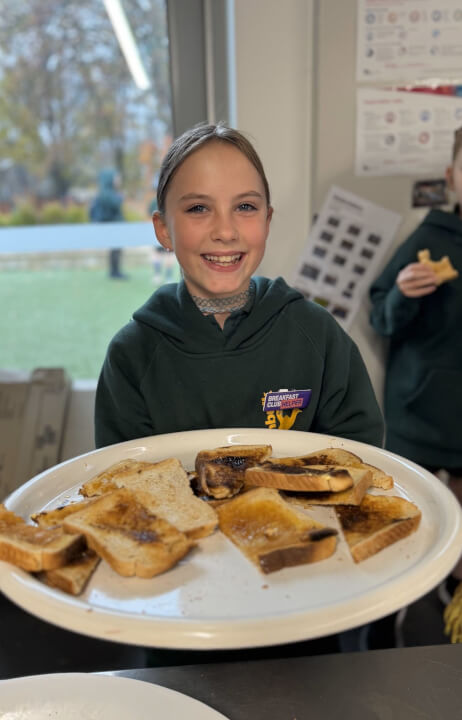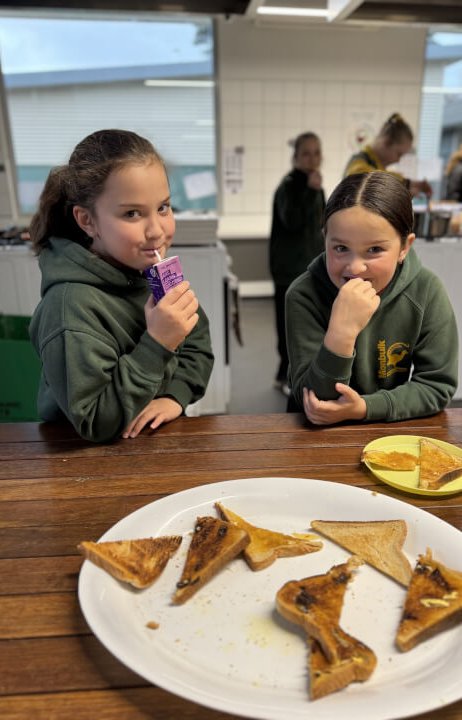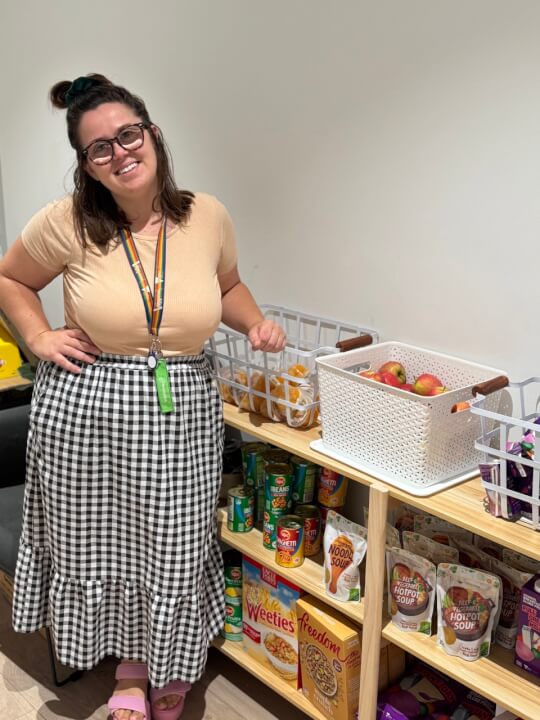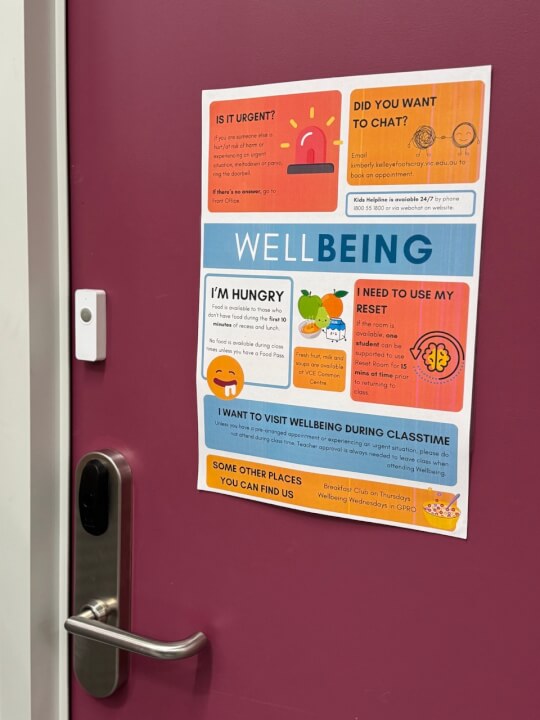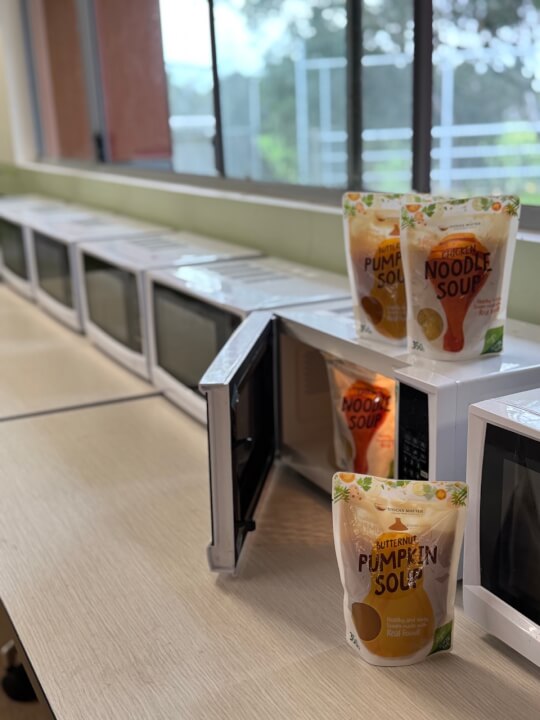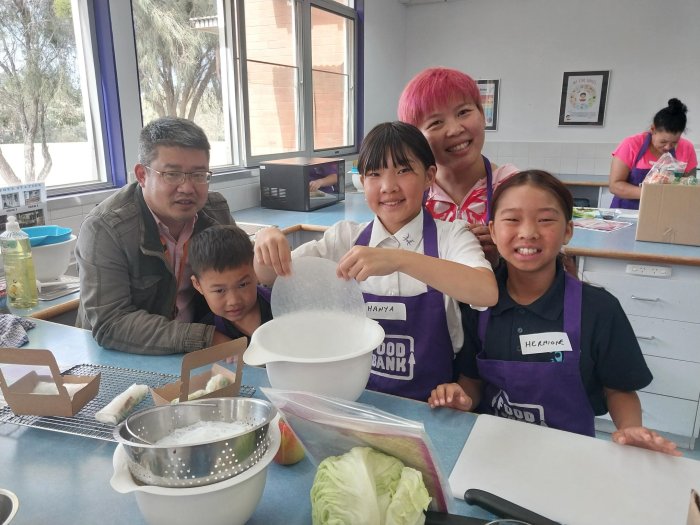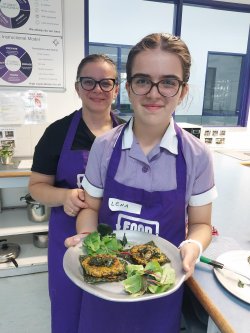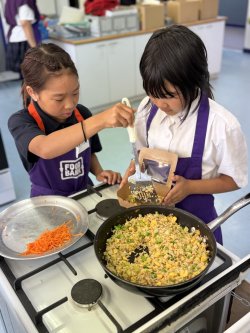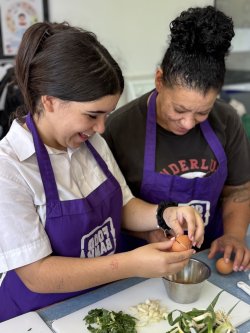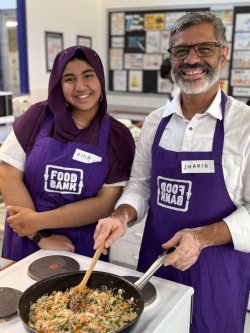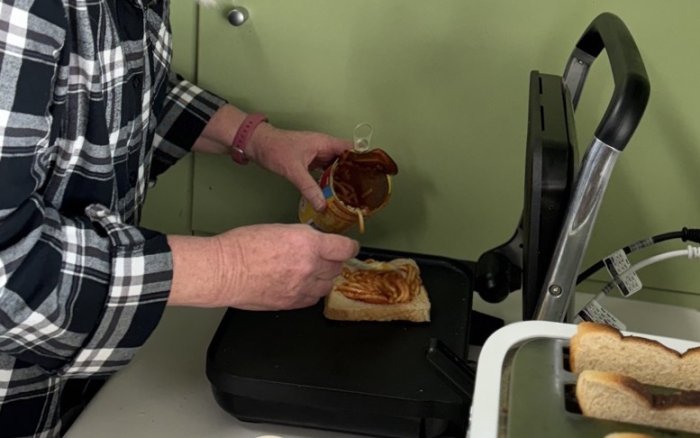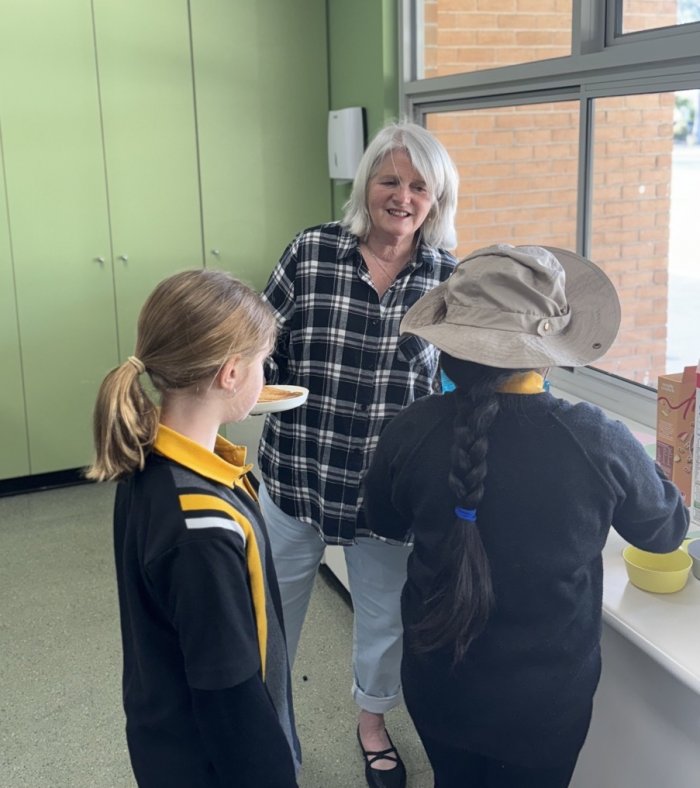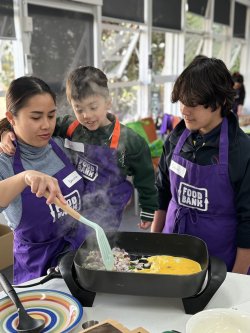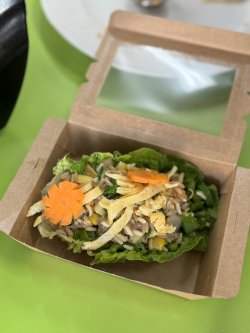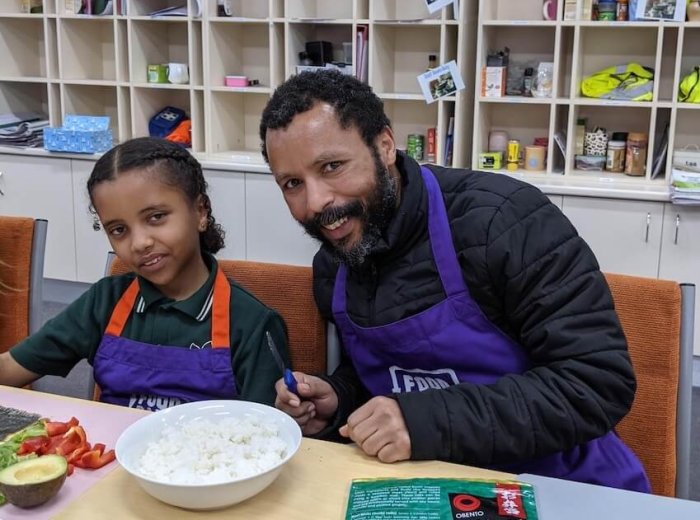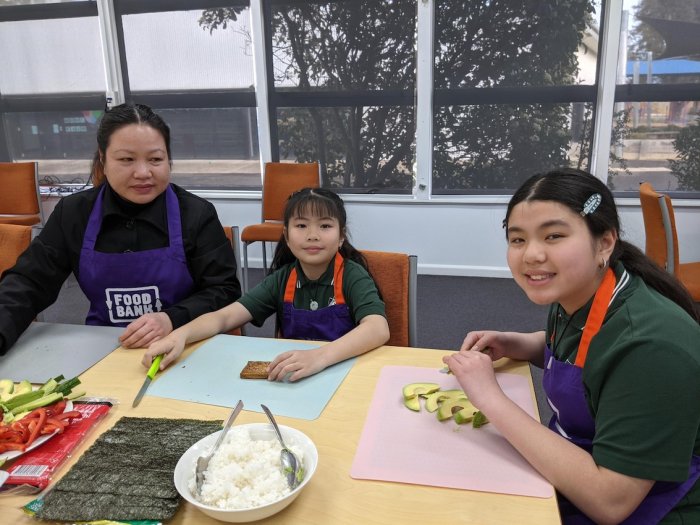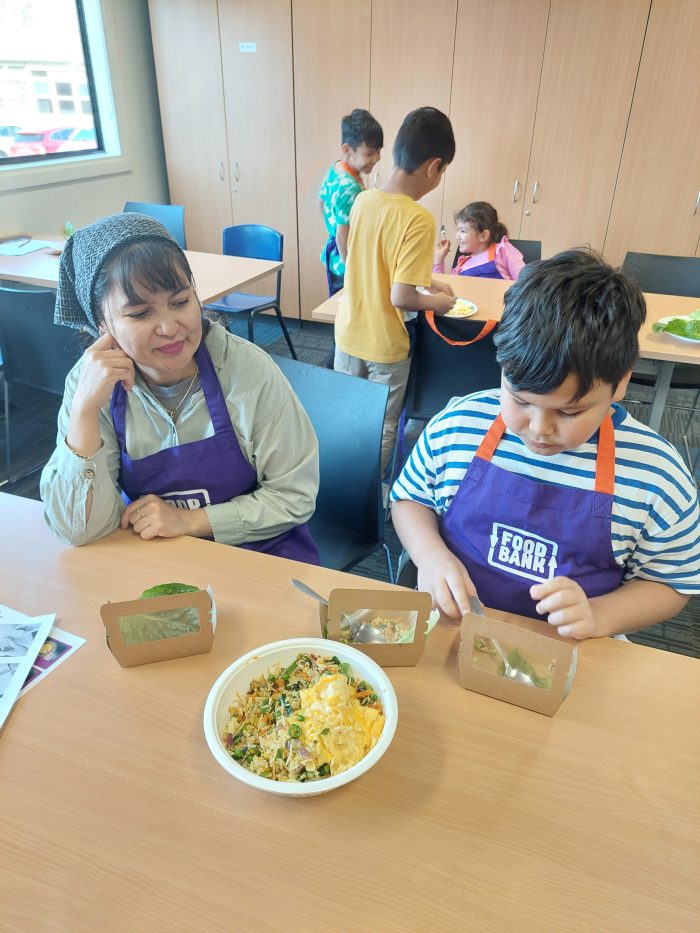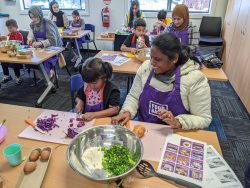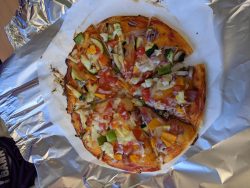Home Food Packs – Tailored Support
Schools are finding practical ways to support families who need a little extra help through the home food packs program. The School Breakfast Clubs Program isn’t just about providing meals at school – it also supports students who may not have enough food or access to nutritious food at home. The home food packs are designed to offer flexibility, choice, and solutions that work for each school community.

Giving Families Choice
A south-eastern primary school has taken a proactive approach by introducing an open pantry system. Rather than sending the pre-packed boxes home, the school recognised that families value the ability to choose what works best for them. This simple change means families can select the items they need, helping reduce waste and giving them more control.
The pantry is stocked with items from the School Breakfast Clubs Program menu, ensuring access to nutritious staples. And donations from a local church add extra variety, making it a true community effort that keeps the shelves full and the options wide ranging.
This approach makes support feel natural and easy. Students and their families can get what they need without feeling restricted, and the process encourages independence and comfort during challenging times.
Keeping Support Private
A west Victorian school has developed a thoughtful approach to supporting families who need extra food at home. They know that how support is delivered matters, so they focus on privacy and practicality.
Instead of sending the pre-packed boxes home in one go, the school divides them into smaller, manageable portions. These are packed into School Breakfast Clubs Program calico bags, which fit inside a student’s school bag so food can be carried home discreetly.
Staff also arrange quiet pick-up times when other students aren’t around. This small but important consideration means schools can support students and their families with dignity and respect. It’s a simple system that makes getting help feel easy and comfortable.
Responding When Demand Spikes
When a secondary college saw a surge in need during winter, driven by rising energy bills and household pressures, they acted quickly. The school requested extra home food packs to meet demand, showing how important it is to be responsive and flexible when families need more support.
Life can change quickly, and being prepared makes all the difference. The home food pack program provides reassurance for schools and supports students who may not have enough food or access to nutritious meals at home.
These examples show that schools aren’t just handing out home food packs – they’re listening to their communities and adapting the program to fit real needs. And that’s what truly makes a difference.
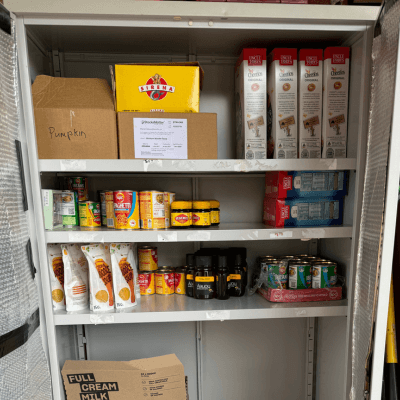
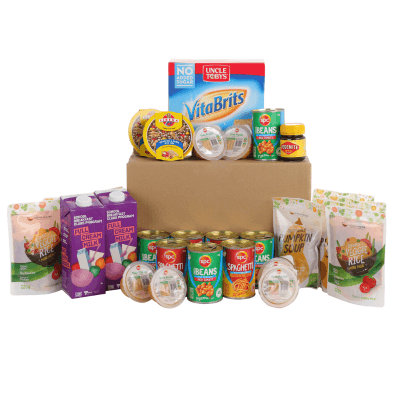
 Log in
Log in